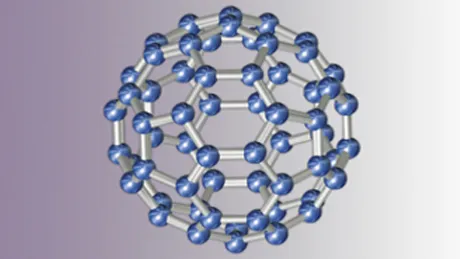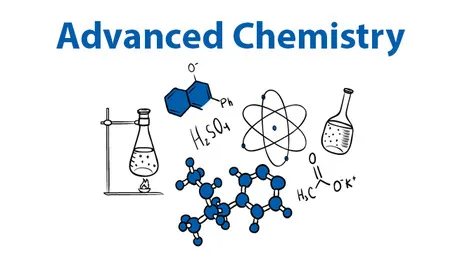
Bio-electrochemistry 
This course will provide an overview of the fundamentals of electrochemistry and its applications in biochemistry, analytical chemistry, medicinal chemistry, bio-energy devices and biosensors. We will discuss the basic principles of electrochemistry and how they can be applied to various biological systems. We will also explore the use of electrochemistry in bio-sensors, bio-fuel cells and diagnostics. ▼
ADVERTISEMENT
Course Feature
![]() Cost:
Cost:
Free
![]() Provider:
Provider:
Swayam
![]() Certificate:
Certificate:
No Information
![]() Language:
Language:
English
![]() Start Date:
Start Date:
5th Feb, 2018
Course Overview
❗The content presented here is sourced directly from Swayam platform. For comprehensive course details, including enrollment information, simply click on the 'Go to class' link on our website.
Updated in [May 25th, 2023]
Bio-electrochemistry is an interdisciplinary subject that combines basic electrochemistry and its applications in biochemistry, analytical chemistry, medicinal chemistry, bio-energy devices, and biosensors. This course provides an overview of the basic principles of electrochemistry and the various applications of these principles in biology, with a focus on biosensors, bio-fuel cells, and diagnostics. Students will gain an understanding of the fundamentals of electrochemistry and its applications in the biological sciences. They will also learn about the design and development of biosensors, bio-fuel cells, and diagnostics. By the end of the course, students will have a comprehensive understanding of the principles of bio-electrochemistry and its applications.
[Applications]
It is suggested that those who have completed this course in Bio-electrochemistry apply their knowledge to the development of bio-sensors, bio-fuel cells, and diagnostics. Additionally, they can use their understanding of the basic principles of electrochemistry to explore new applications in biochemistry, analytical chemistry, medicinal chemistry, and bio-energy devices.
[Career Paths]
1. Bio-electrochemistry Researcher: Bio-electrochemistry Researchers are responsible for researching and developing new technologies and applications related to bio-electrochemistry. They must have a strong understanding of the principles of electrochemistry and be able to apply them to the development of new technologies. They must also be able to work with a variety of stakeholders, including scientists, engineers, and industry partners.
2. Bio-electrochemistry Engineer: Bio-electrochemistry Engineers are responsible for designing and developing new technologies and applications related to bio-electrochemistry. They must have a strong understanding of the principles of electrochemistry and be able to apply them to the development of new technologies. They must also be able to work with a variety of stakeholders, including scientists, engineers, and industry partners.
3. Bio-electrochemistry Technician: Bio-electrochemistry Technicians are responsible for the maintenance and operation of bio-electrochemical systems. They must have a strong understanding of the principles of electrochemistry and be able to apply them to the maintenance and operation of bio-electrochemical systems. They must also be able to work with a variety of stakeholders, including scientists, engineers, and industry partners.
4. Bio-electrochemistry Consultant: Bio-electrochemistry Consultants are responsible for providing advice and guidance to clients on the use of bio-electrochemical systems. They must have a strong understanding of the principles of electrochemistry and be able to apply them to the development of new technologies. They must also be able to work with a variety of stakeholders, including scientists, engineers, and industry partners.
The field of bio-electrochemistry is rapidly growing and evolving, with new technologies and applications being developed every day. As such, there is a growing demand for professionals with expertise in this field. With the right training and experience, these professionals can find rewarding and lucrative careers in the field of bio-electrochemistry.
[Education Paths]
1. Bachelor of Science in Bio-electrochemistry: This degree program provides students with a comprehensive understanding of the principles of electrochemistry and its application in biochemistry, analytical chemistry, medicinal chemistry, bio-energy devices and biosensors. Students will learn about the fundamentals of electrochemistry, the principles of bio-electrochemistry, and the development of bio-sensors and bio-fuel cells. This degree program is ideal for those interested in pursuing a career in the field of bio-electrochemistry.
2. Master of Science in Bio-electrochemistry: This degree program provides students with an advanced understanding of the principles of electrochemistry and its application in biochemistry, analytical chemistry, medicinal chemistry, bio-energy devices and biosensors. Students will learn about the fundamentals of electrochemistry, the principles of bio-electrochemistry, and the development of bio-sensors and bio-fuel cells. This degree program is ideal for those interested in pursuing a career in the field of bio-electrochemistry and research.
3. Doctor of Philosophy in Bio-electrochemistry: This degree program provides students with an in-depth understanding of the principles of electrochemistry and its application in biochemistry, analytical chemistry, medicinal chemistry, bio-energy devices and biosensors. Students will learn about the fundamentals of electrochemistry, the principles of bio-electrochemistry, and the development of bio-sensors and bio-fuel cells. This degree program is ideal for those interested in pursuing a career in the field of bio-electrochemistry and research, as well as those interested in teaching and research in the field.
4. Master of Engineering in Bio-electrochemistry: This degree program provides students with a comprehensive understanding of the principles of electrochemistry and its application in biochemistry, analytical chemistry, medicinal chemistry, bio-energy devices and biosensors. Students will learn about the fundamentals of electrochemistry, the principles of bio-electrochemistry, and the development of bio-sensors and bio-fuel cells. This degree program is ideal for those interested in pursuing a career in the field of bio-electrochemistry and engineering.
The development of bio-electrochemistry is an ever-evolving field, with new applications and technologies being developed every day. As such, the demand for professionals with expertise in this field is expected to continue to grow in the coming years. With the right degree, graduates can look forward to a rewarding career in this field.
Course Provider

Provider Swayam's Stats at AZClass
Discussion and Reviews
0.0 (Based on 0 reviews)
Explore Similar Online Courses

Free YouTube Course for Beginners

Katakana Basics Online Course Japanese for Beginners

Python for Informatics: Exploring Information

Social Network Analysis

Introduction to Systematic Review and Meta-Analysis

The Analytics Edge

DCO042 - Python For Informatics

Causal Diagrams: Draw Your Assumptions Before Your Conclusions

Whole genome sequencing of bacterial genomes - tools and applications

General Chemistry: Concept Development and Application

Advanced Chemistry


Start your review of Bio-electrochemistry